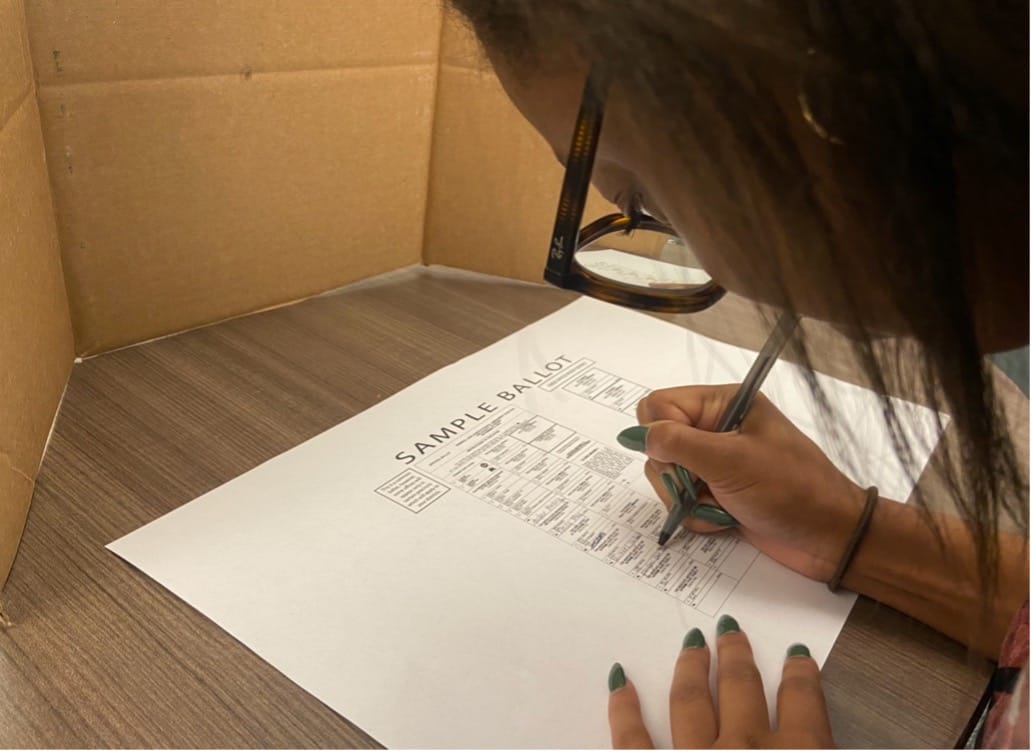Voter Attitudes Towards Presidential Candidates Not as Important as Attitudes Towards Specific Issues

Since 2000, Gallup has conducted a poll measuring voter enthusiasm going into presidential elections. This year, 54% of voters polled reported they more enthusiastic about voting in this presidential election, while 41% were less enthusiastic.
These numbers are on par with most presidential election cycles, with the lowest-recorded voter enthusiasm coming in at 37% for Gallup’s in 2000 and the highest-recorded voter enthusiasm coming in at 62% in 2008.
However, Gallup released the 2024 voter enthusiasm poll in April 2024 before Vice President Kamala Harris entered the race in President Joe Biden’s stead, and several experts at Auburn University suggest voters may be much more enthusiastic now.
“Over 8,000,000 Americans have already voted. [In] North Carolina, their early voting numbers are already exceeding what they were in 2020. Of course, 2020 was record-high turnout,” said Spencer Goidel, assistant professor of political science at Auburn University. “I think people are very enthusiastic, mainly because of the candidate change. If Joe Biden were still a candidate, I don’t think it would be that way.”
Goidel suggested that Harris’ entry into the race energized the Democratic base, as he thought was evidenced by the hefty fundraising numbers the Harris campaign raked in during her first few weeks as a candidate.
“I think we saw [an increase in enthusiasm] after Biden stepped aside and Harris stepped in and got the nomination that there was a lot of enthusiasm in some groups,” said Mitchell Brown, Curtis O. Liles Endowed professor of political science at Auburn University.
While Goidel and Brown said they both observed an uptick in enthusiasm among Democratic voters, Brown said Harris’ entry also energized the base of former president and Republican presidential nominee Donald Trump.
Another political science professor at Auburn University — Joe Aistrup — agreed with his colleagues that voters are fairly energized to vote at this particular time. However, Aistrup emphasized the role of party affiliation over general enthusiasm in how voters will ultimately vote going into Nov. 5.
By and large, the way [voters] view candidates is colored by their party orientation,” Aistrup said. “We do have individuals who tend to be Republican and who call themselves Republicans, and as a consequence about 90% of them will vote for Donald Trump. … Likewise, we have a certain number who think of themselves as Democrats who will vote that way too.”
Aistrup still insisted that many voters who identify as independent still lean toward one side of the spectrum over the other, and their votes often reflect that tilt. Aistrup said Independents are more likely to be swayed away from their traditional political leanings during presidential elections because of the magnifying glass that is placed on it.
“[Undecided voters] might evaluate candidates by, for example, the economy, which seems to be a big issue right now, as well as, for example, major issues like abortion or immigration,” Aistrup said.
Another factor in the outcome of a presidential election is voters who vote against a candidate. Aistrup cited the 2020 election as an example, noting that a large swath of voters was seemingly voting against Trump’s temperament and personality. While some of those voters may not have been enthusiastic about voting, Aistrup said they were still “highly motivated” to vote.
“What you have is a situation where enthusiasm sometimes should be thought of in terms of motivation to go out and support one candidate over another, and that’s the reason we had the highest turnout in 2020 at 65%,” Aistrup said.
Goidel pointed out that during the 2016 election, much rhetoric fixated on “the lesser of two evils.” However, he said that 2016 was not the highest turnout for negative voting, which he said was essentially voting for one candidate because of a dislike for another candidate.
Similar to Aistrup’s comments on voters voting for their party affiliation, Goidel noted that not only do voters typically vote for their party’s candidate — they mostly support and approve of their candidates.
“I think [some voters] say it’s because they dislike the other side because that’s the socially acceptable answer and it makes them seem less partisan,” Goidel said. “If you go out there saying, ‘Oh, I just love my party’s candidate,’ you sound like a partisan hack.”
By Tucker Massey - November 4, 2024